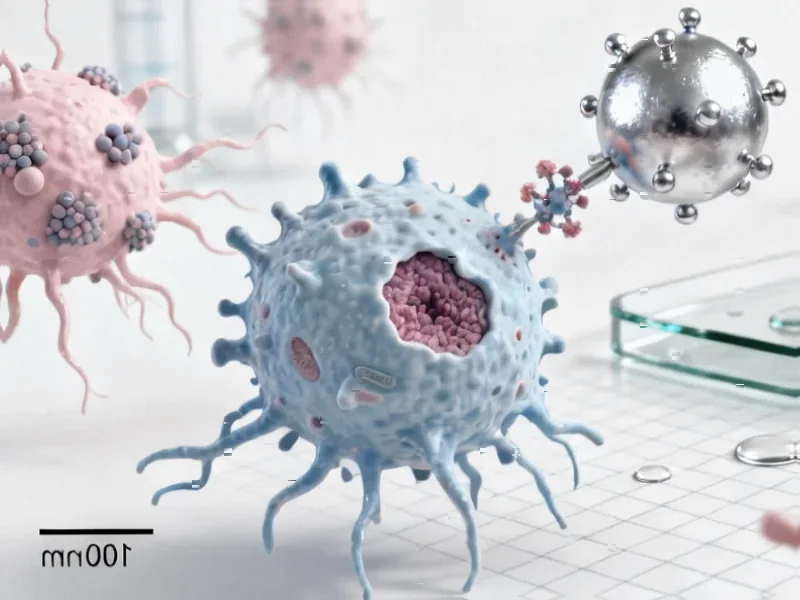According to Forbes, we’re seeing breakthrough technologies that could actually cure multiple cancers within 5-10 years. Harvard’s Sybil AI can detect lung cancer before it even develops, while researchers from Corner Therapeutics are developing in vivo T cell engineering that gives 80-year-olds the immune fighting power of 20-year-olds. Their approach uses “hyperactivators” to rejuvenate aging dendritic cells and create durable immune memory through Memory T cells. The treatment applies to all cancers at all stages and enters clinical trials next year. Dr. Marc Siegel predicts AI will personalize drug selection, while researchers Nick Seaver and Dania Zhivaki aim to fundamentally reshape aging itself by targeting immune decline.
<h2 id="aging-cancer-connection”>The aging-cancer connection we’ve been ignoring
Here’s the thing that’s genuinely revolutionary about this approach: for decades, we’ve basically accepted that cancer is just what happens when you get old. But what if aging itself is the problem we should be solving? Zhivaki makes a powerful comparison to polio – people once thought that was just part of life too, until science changed everything.
The research shows that as we age, our dendritic cells (the “generals” of our immune system) lose their edge, and our T cells (the “soldiers”) dwindle in numbers. So it’s not just that cancer happens more in older people – it’s that their immune systems can’t fight it effectively. This new approach directly targets that problem. But let’s be real – mouse studies are one thing, human trials are another. We’ve seen plenty of promising cancer treatments fail when they hit clinical trials.
The AI diagnostic revolution happening now
While the immune therapies are still in development, the AI side is already delivering results. Programs like Harvard’s Sybil are analyzing lung scans and spotting cancer risks before tumors even form. That’s huge because early detection has always been one of our best weapons against cancer mortality.
And Siegel’s point about AI personalizing drug selection? That addresses one of oncology’s biggest problems: we waste precious time and cause unnecessary side effects with treatments that don’t work for specific patients. If AI can tell us “this drug will work for this person and not that one,” we’re talking about fundamentally changing how cancer treatment works from day one. The timeline here matters – we’re not talking about distant future possibilities, but technologies that could be available within years.
Durable immunity could be the real game-changer
Seaver’s point about Memory T cells creating “durable immune memory” is what separates this from everything we have now. Current cancer treatments might knock the disease back, but patients live with the constant fear of recurrence. If these therapies can create the cancer equivalent of chicken pox immunity – where your body remembers how to fight it off forever – that’s not just treatment, that’s an actual cure.
But here’s my skepticism: cancer cells are masters of evasion and mutation. They find ways around our defenses. Will Memory T cells really provide lasting protection against cancers that constantly adapt? The researchers seem confident, but cancer has humbled plenty of confident scientists before.
The broader implications are staggering
What’s really fascinating is how this research frames immune decline as the “Fifth Horseman” of aging-related diseases. Seaver connects immune system failure to heart disease, dementia, diabetes, depression – basically most of what goes wrong as we age. So if they’re right, fixing immune decline could have benefits far beyond just cancer prevention.
Now, the vision of 80-year-olds climbing Kilimanjaro and playing baseball with great-grandchildren sounds almost too good to be true. And let’s be honest – when researchers start talking like that, it raises eyebrows. But the science behind it seems solid, and the fact that they’re working with major global health partners and entering clinical trials next year suggests this isn’t just theoretical.
Basically, we might be witnessing the beginning of the end of cancer as we know it. Or at least, we’re seeing the first real approaches that could make that possible. After generations of incremental progress, that’s something worth getting excited about.




